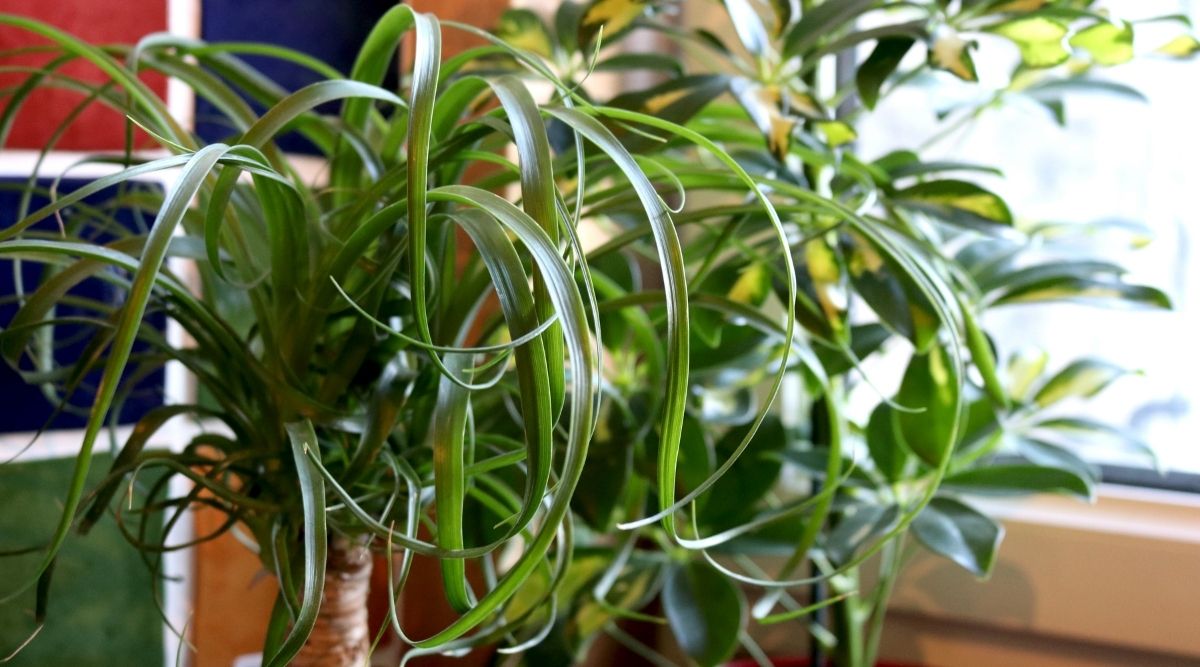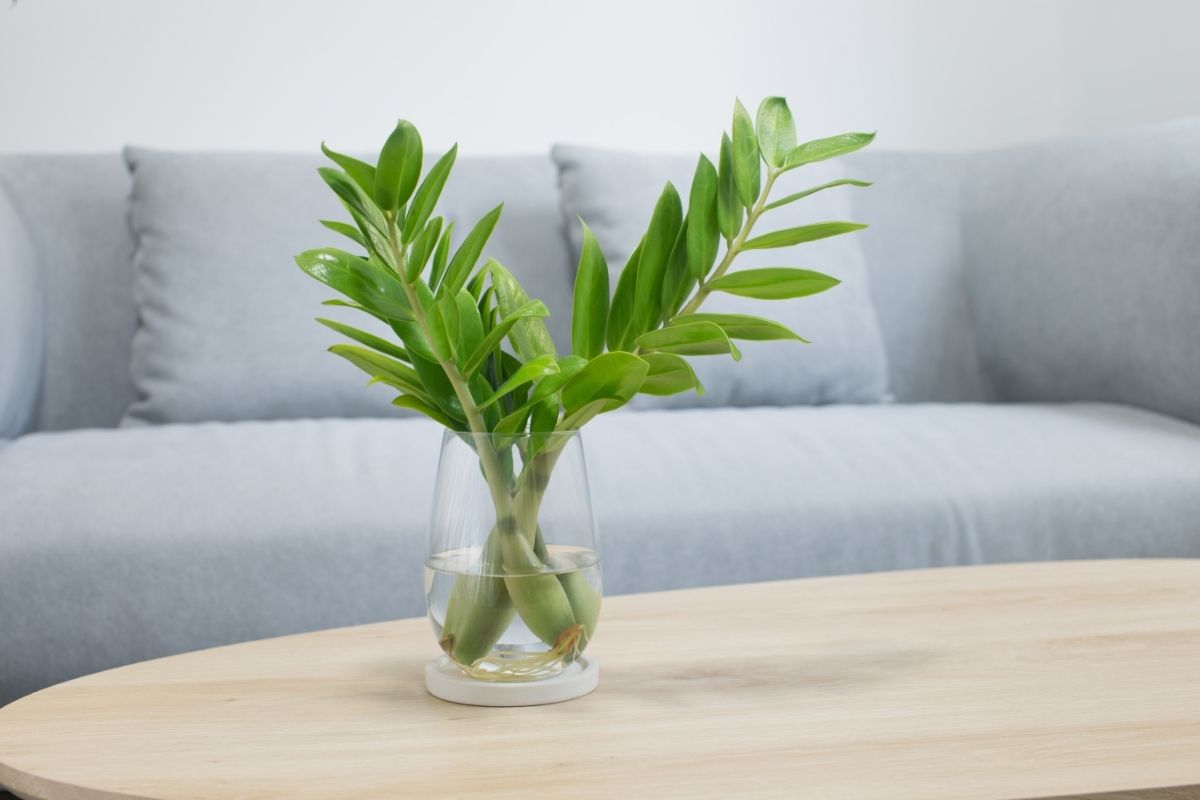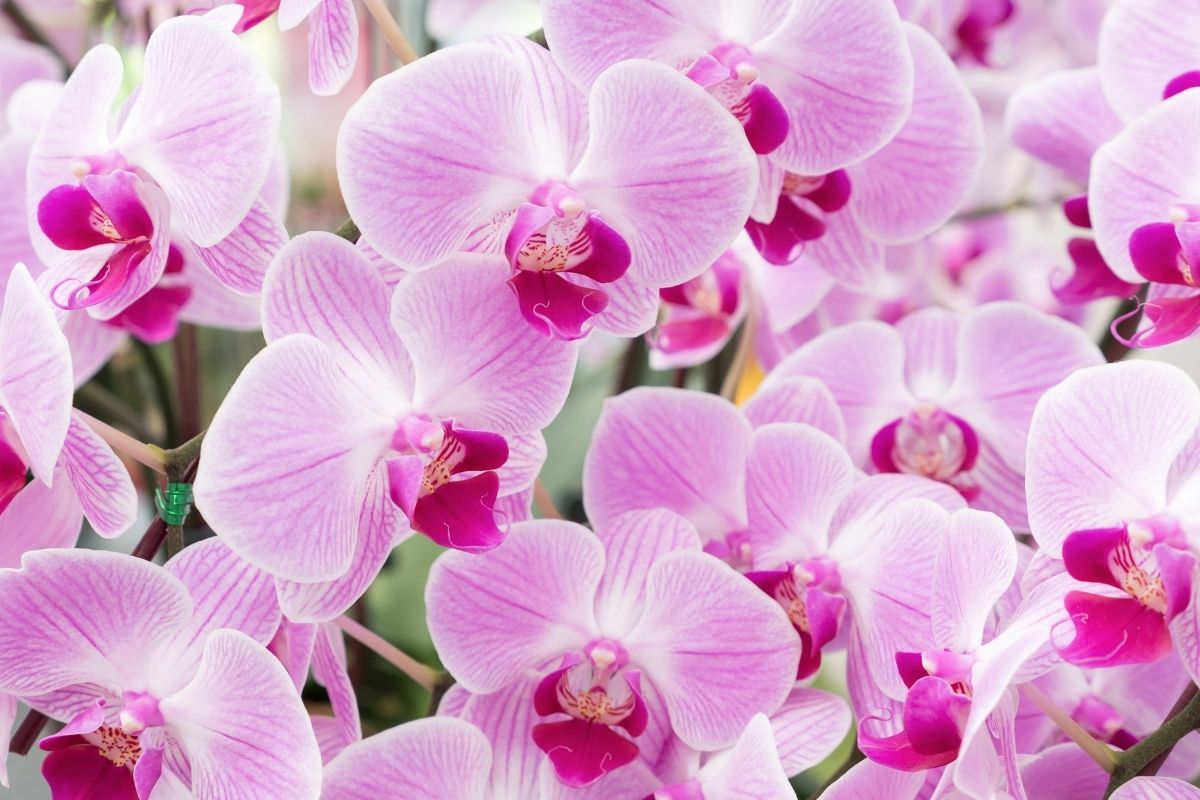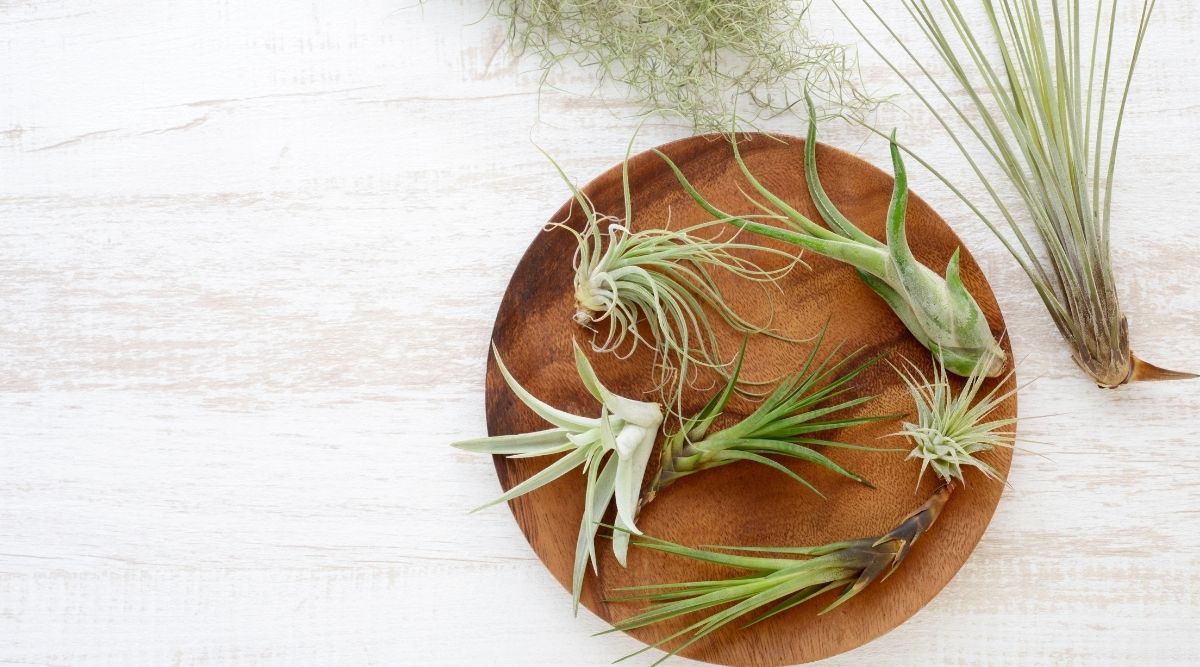Houseplants are very popular in modern homes. They can significantly increase your home decor, oxygenate your home and even improve your home’s aroma. Of course though, many homes also have pets.
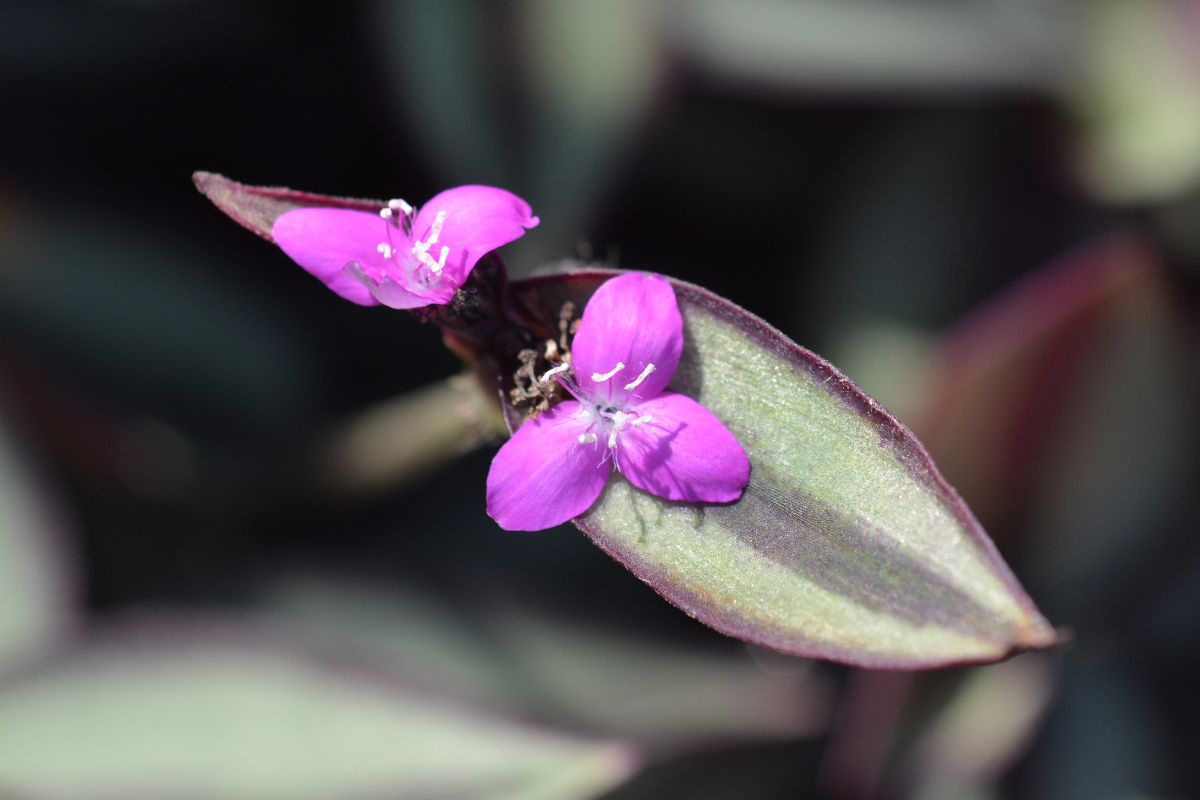
If you have a cat for example, you may be wondering if a wandering jew plant – which is a popular houseplant – is toxic to cats. Well, the short answer is yes.
Of course though, there’s a lot more you need to know about this topic. So, we’ve written this handy guide that explains everything you need to know about the toxicity of wandering jews and cats.
Ready to learn more? Read on for much further detail.
What Is A Wandering Jew Plant?
Wandering jew plants are very popular types of houseplants. They’re extremely pretty with their green, white and additional colors in horizontal stripes.
These plants are otherwise known as Tradescantia zebrina, fluminensis, or pallida.
Due to its controversy, the name also goes by a wandering dude these days – so if you see this description somewhere else, don’t be alarmed – they’re the same plant.
Are Wandering Jews Toxic?
Yes, wandering jews like a lot of other houseplants are toxic, especially to your pets.
This is because the plant has sap located in the stems which contains calcium oxalate crystals. These crystals can cause harm to you and your pets.
Essentially, these crystals are designed somewhat like a cluster of needles.
When ingested, they can lead to irritation and even small cuts in the affected areas. As a result, if your cat was to eat some of this plant, they might:
- Vomit
- Have diarrhea
- Drool
- Cry or react aggressively
The sap causes significant irritation and a burning sensation inside your furry friend, so it’s always a good idea to keep your cat away from a wandering jew plant.
Are Wandering Jews Fatal To Cats?
They can be, but it’s really unlikely. This is because when a cat eats part of this plant, they will feel burning and irritation in the mouth, tongue, throat and stomach.
As a result, it’s unlikely that they will continue to eat the plant.
This is critical to know because if a large amount of this plant is consumed, it can lead to kidney damage and potentially even kidney failure – which is of course, potentially fatal to cats.
On top of this, if your cat reacts with continuous vomiting or diarrhea, it’s likely they will experience dehydration and malnutrition – both of which can lead to further problems like heart failure.
As we said though, it’s unlikely that it will get this far because of the reaction the cat will have from their first try of the plant.
Why Are Wandering Jews Toxic?
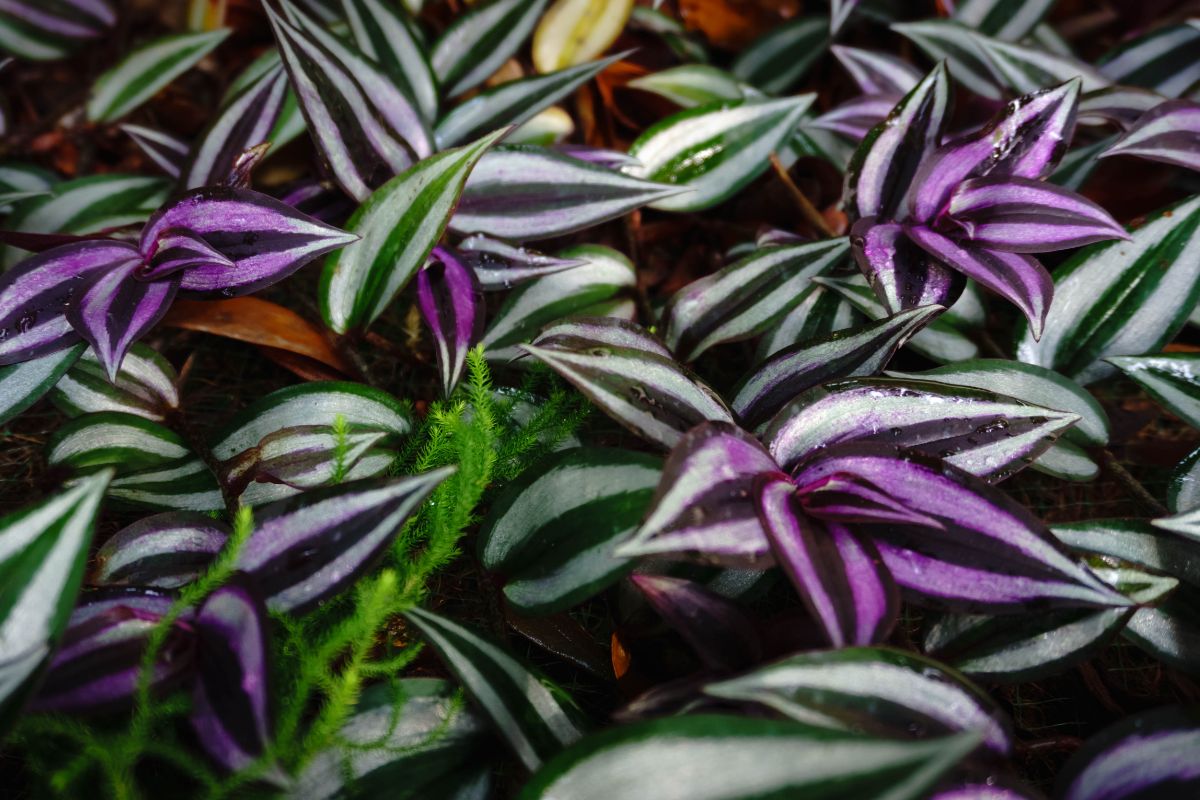
The sap is the plant’s natural defense mechanism to stop animals from eating them, so they can continue to produce and survive.
It’s a good idea at this point to explain that wandering jew plants are also toxic to humans.
As a result, if you are propagating your wandering jew plant, you should consider wearing safety gloves and safety glasses – and always remember to wash your hands thoroughly after handling these plants.
What If My Cat Eats Some Wandering Jew Plant?
For the most part, your cat might show some symptoms of sickness like vomiting, drooling, discomfort, fatigue or aggression – and if they have only consumed a small amount of this plant, they should make a full recovery relatively soon.
However, if your cat has ingested a large amount of this plant, you should seek a veterinarian for advice as soon as possible.
They should examine your furry friend to check for any potential problems and will provide you with advice going forward.
In extreme cases, the vet may wish to keep your cat overnight for observation – but as we said earlier, it’s very unlikely for things to get to this point.
Keeping Your Cat Away From Wandering Jew
The best form of defense is prevention. If you can keep your cat away from your wandering jew plant, you will not need to worry about them getting sick – and it will save you so much money in vet bills!
So, how can you keep your cat away from your wandering jew plant? Here’s some of the things you can do:
Use Borders
One way that owners keep their cats away from their houseplants is by using a type of “border”.
This is pretty much using a gate or something like that to stop the cat having easy access to the plant, and therefore preventing them from eating the plant.
However, it’s not always that easy. Unlike dogs, cats have a tendency to jump on top of things in order to get to what they want.
Therefore, some gates will not be enough to keep your furry friend away from your plant.
Use A Deterrent
You can buy a deterrent spray for cats. They often use ingredients which have been clinically tested, which cats really do not like.
However, there is a problem with this method. Some of these chemicals react poorly with the plant.
As a result, you will need to be extremely careful when you want to use this spray near your houseplant.
Positive Reinforcement
Some animal trainers will tell you that they recommend positive reinforcement as a way to stop “bad” behavior.
While it is not the cat’s fault that they are intrigued by the plant, you need to find a way to keep them away from it.
Instead of punishing them, try to reward them for staying away from the plant. Consider keeping an eye on them in the first few weeks and hopefully they should get the message!
Final Thoughts
Yes, wandering jew plants are toxic to cats so it’s a good idea to keep your furry friends away from your favorite houseplants every time!
- Best Hanging Plant For Low Light - September 4, 2023
- Best Indoor Plants Florida - August 28, 2023
- Best Plants For Bathroom Smells - August 21, 2023



